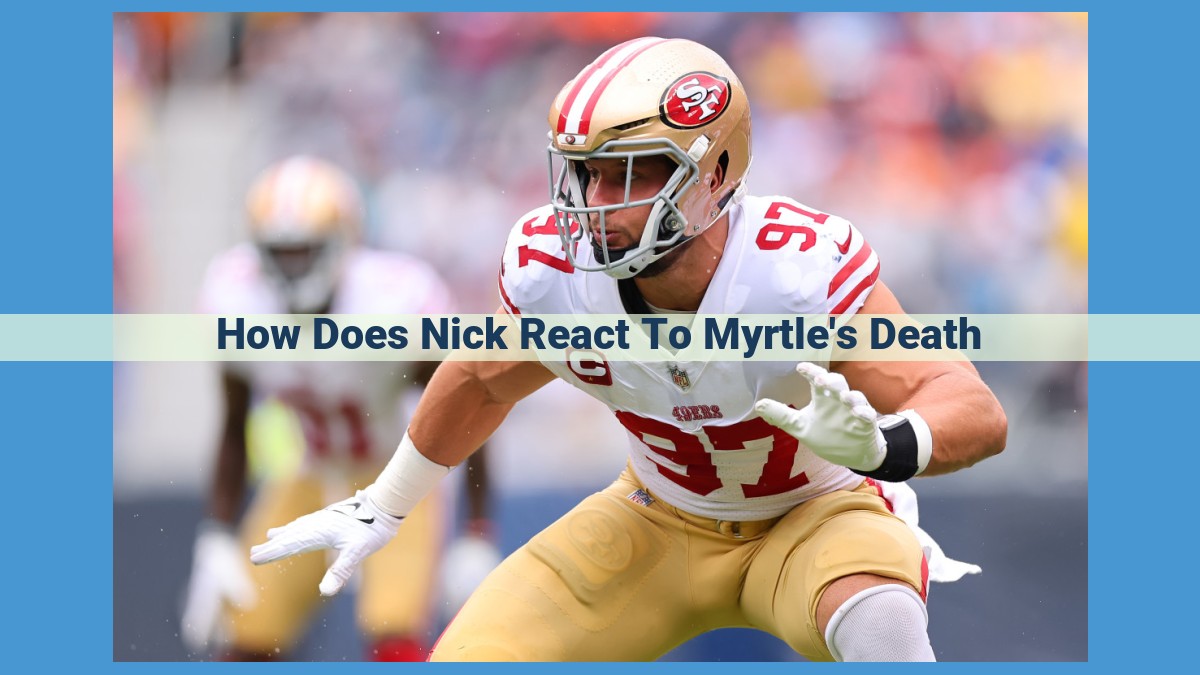Nick’s reaction to Myrtle’s death is complex and multifaceted. He feels a sense of loss and grief, as well as alienation from his surroundings. These emotions shape his interactions with others, particularly Jordan, whose grief he empathizes with, and Gatsby, whose shattered dreams and emotional turmoil are illuminated by his response. As the narrator, Nick’s unique position as an observer and confidant provides him with insights into the events and characters of the novel, influencing the reader’s understanding through his perspective.
Nick’s Emotional Reactions to Myrtle’s Death
In F. Scott Fitzgerald’s literary masterpiece, “The Great Gatsby,” Nick Carraway serves as both a witness and narrator, offering an intimate glimpse into the tragic events that unfold. Amidst the opulence and excess, the unexpected death of Myrtle Wilson stirs profound emotions within Nick, mirroring the growing disillusionment and shattered dreams that permeate the novel.
Loss and Grief:
The sudden and senseless loss of Myrtle deeply affects Nick, leaving him with an overwhelming sense of grief. He grapples with the finality and brevity of life, and his interactions with others are tinged with a quiet, subdued sadness. In his narration, Nick’s words convey a palpable sense of loss and the inability to escape the weight of Myrtle’s absence.
Alienation and Distance:
The emotional upheaval caused by Myrtle’s death further isolates Nick from his companions. He finds himself increasingly alienated, unable to fully connect with the superficiality and self-absorption of the world he inhabits. Nick’s emotional distance becomes a barrier, separating him from the other characters and mirroring the growing divide between the different social strata in the novel.
Nick’s Reflections on the Nature of Death
- Discuss Nick’s contemplation on the brevity and inevitability of life.
- Examine how these thoughts affect his perspective on the events of the novel.
Nick’s Reflections on Mortality in The Great Gatsby
Throughout The Great Gatsby, Nick Carraway’s observations on the transient nature of life serve as a poignant backdrop to the novel’s glittering facade. Nick’s experiences and interactions shape his profound contemplation on the brevity and inevitability of existence.
Nick witnesses firsthand the fragility of life through the tragic death of Myrtle Wilson. This event triggers within him a deep sense of loss and grief. He questions the haphazard nature of fate and the unpredictable brevity of life. Nick’s musings extend beyond the immediate tragedy, leading him to reflect on the broader inevitability of death.
These philosophical ponderings influence Nick’s perspective on the events of the novel. He becomes more detached and philosophical, viewing the flamboyant lifestyles of the characters through a lens of impermanence. Nick’s realizations about mortality give weight to his narration, adding a layer of depth to the portrayal of their aspirations and downfalls.
Nick’s Reactions to Others’ Responses
- Analyze Nick’s empathy for Jordan’s grief.
- Discuss how Gatsby’s response to Myrtle’s death illuminates his shattered dreams and emotional turmoil.
Nick’s Reactions to Others’ Responses
Nick’s empathy for Jordan’s grief is palpable. He understands her pain, having witnessed the devastating impact of Myrtle’s death on her. Nick’s compassionate nature shines through as he offers comfort and support to Jordan, validating her emotions and showing her that she is not alone in her sorrow.
In contrast, Gatsby’s response to Myrtle’s death is a stark revelation of his shattered dreams and emotional turmoil. His initial denial and disbelief give way to a tumultuous outpouring of grief and rage. Gatsby’s actions, such as confronting Tom Buchanan and his reckless driving, are driven by a desperate attempt to find meaning and control in the face of loss. His response illuminates the tragic fragility of his dreams and the devastating toll that Myrtle’s death takes on his psyche.
Nick’s Unique Perspective as Narrator in The Great Gatsby
Nick Carraway’s pivotal role as narrator in F. Scott Fitzgerald’s The Great Gatsby lends an intimate and unbiased lens through which readers navigate the novel’s tumultuous events and enigmatic characters.
As an observer, Nick remains physically and emotionally removed from the story, providing a detached and analytical perspective. He observes the extravagance and moral decay of the Roaring Twenties without becoming ensnared in its excesses. Through Nick’s non-judgmental gaze, readers gain a clear-eyed view of the tragedy that unfolds.
Nick also serves as a witness to the characters’ private moments and confessions. His detached position allows him to discern their true nature and motivations, which he relays to readers with candor. For instance, Nick’s privileged access to Gatsby’s past allows him to piece together the shattered puzzle of his mythical aspirations.
Moreover, Nick acts as a confidant to many characters, earning their trust and privy to their deepest secrets. This intimacy grants readers unprecedented insight into the characters’ inner workings and hidden vulnerabilities. Nick’s ability to empathize with others, even those he disapproves of, creates a compassionate and relatable narrative voice.
Nick’s unique perspective shapes the reader’s understanding of the novel in several ways. His outsider status allows him to provide a critique of the society he observes, exposing the hollowness and moral bankruptcy that lies beneath its glittering facade. Furthermore, Nick’s personal journey of disillusionment and growth mirrors the larger themes of the novel, making him an effective and engaging guide for readers.
